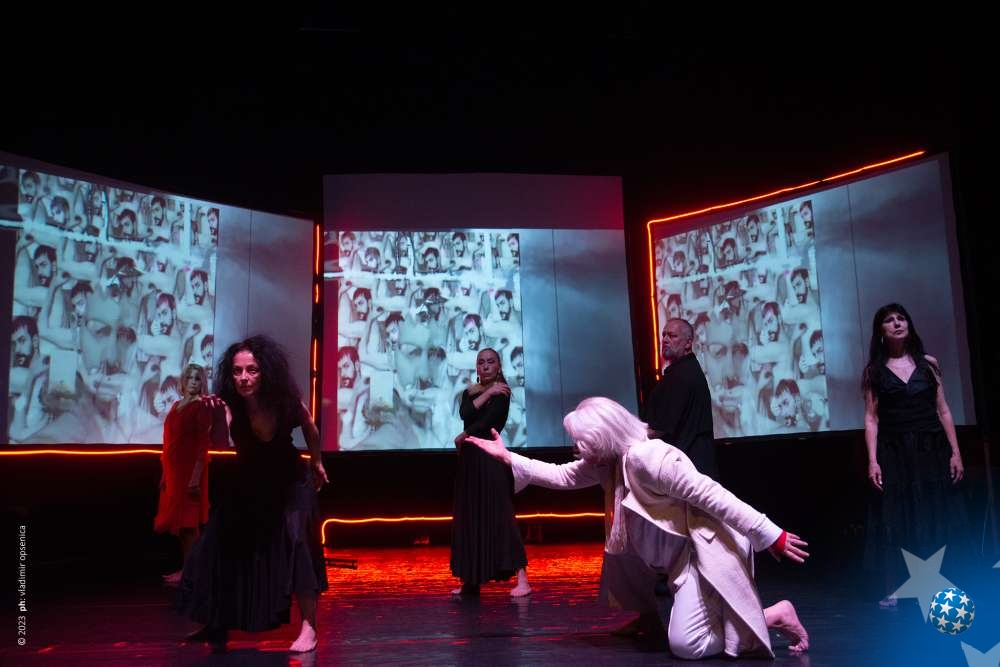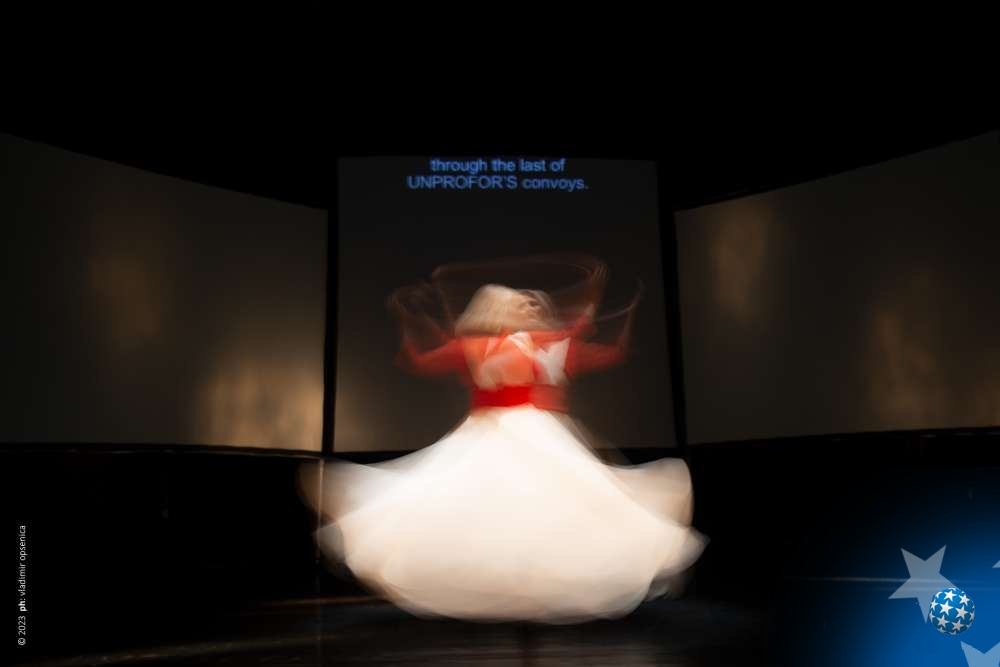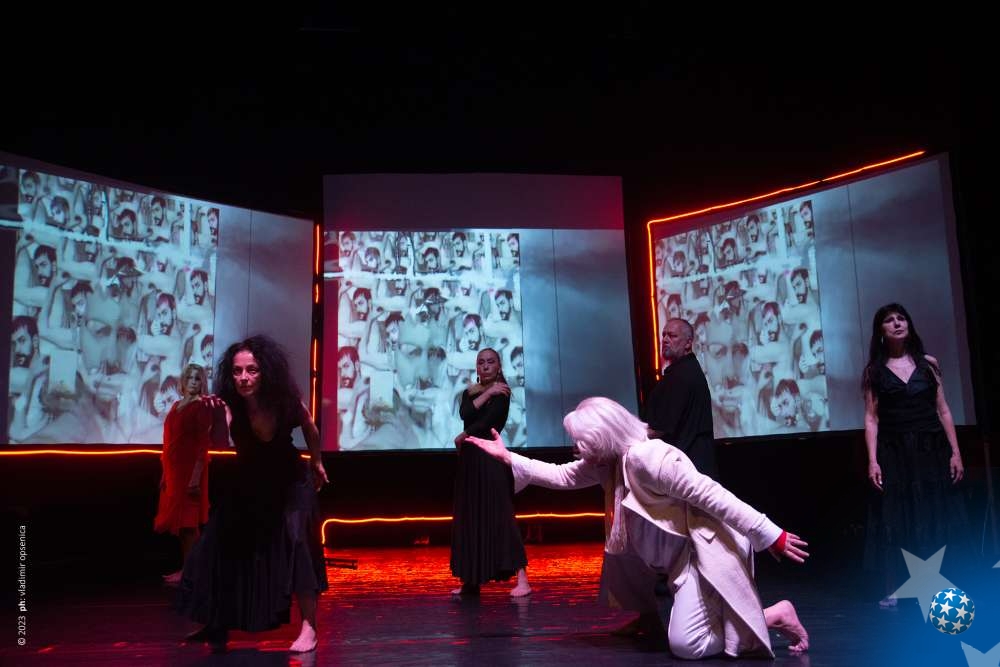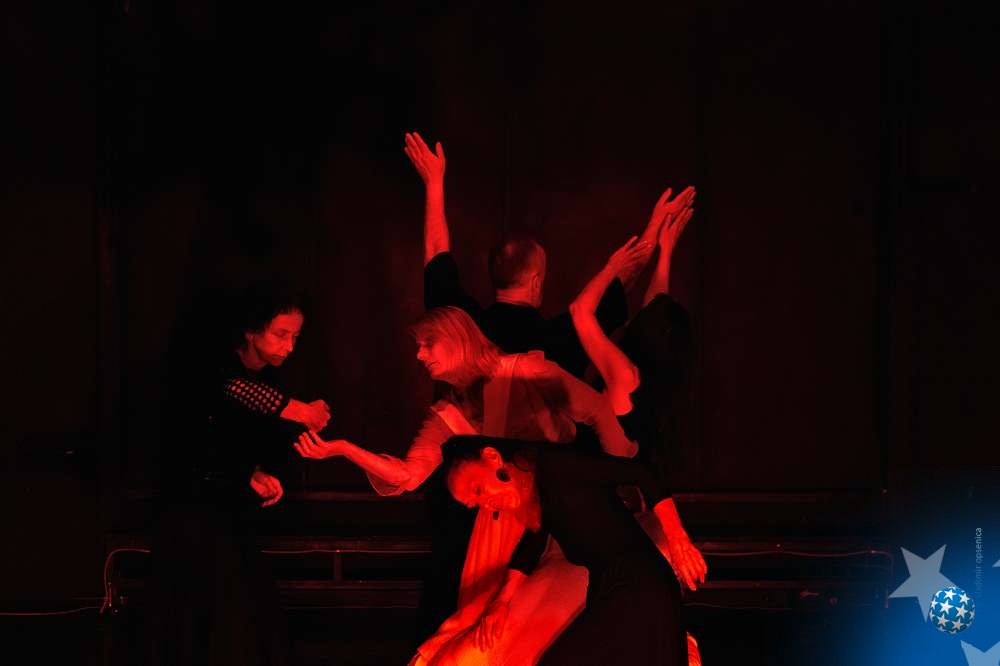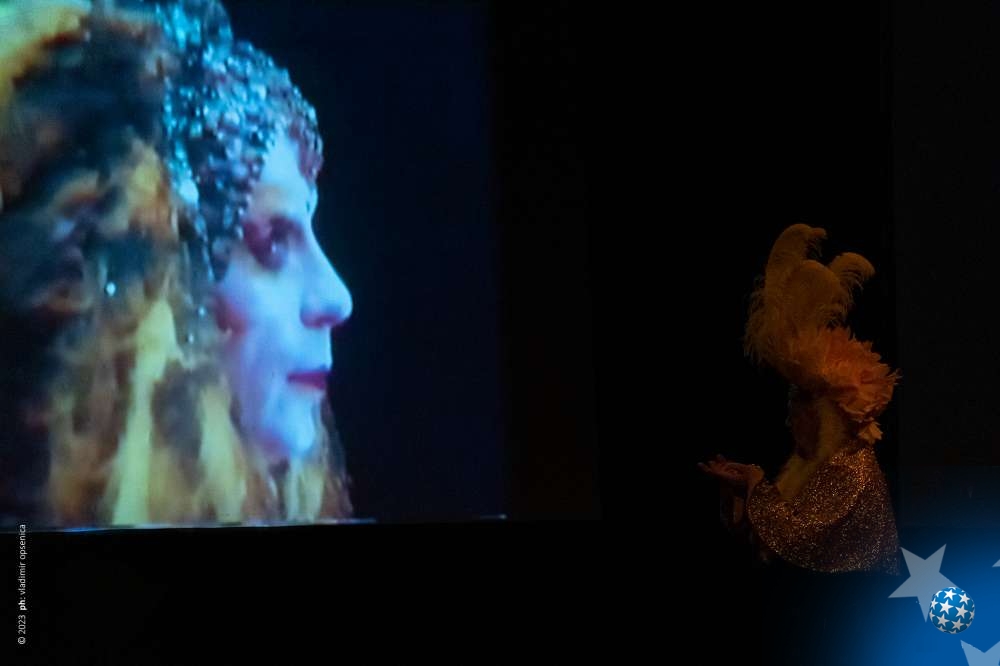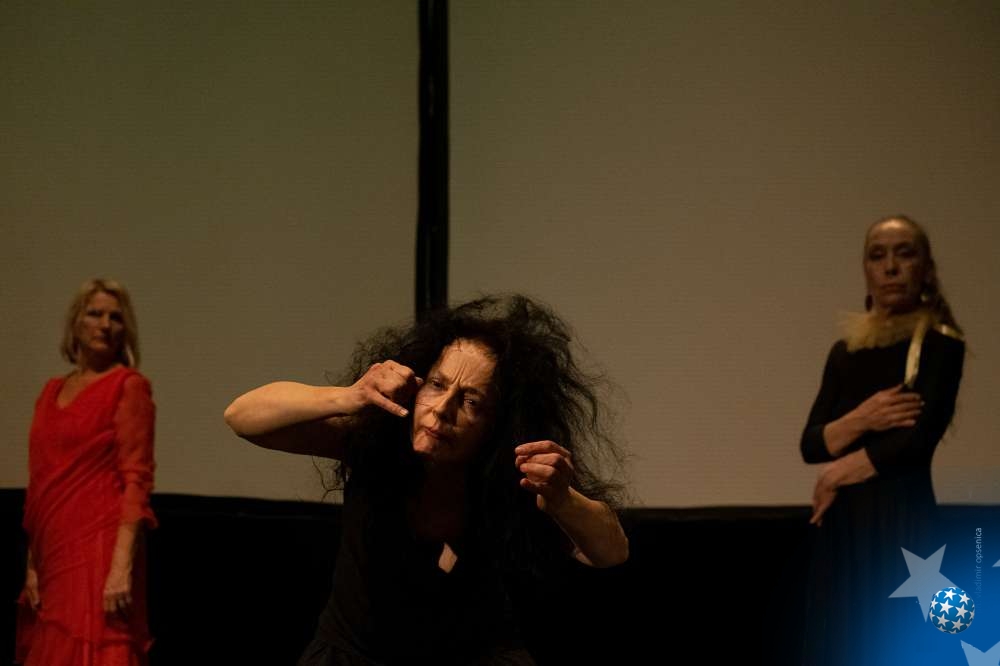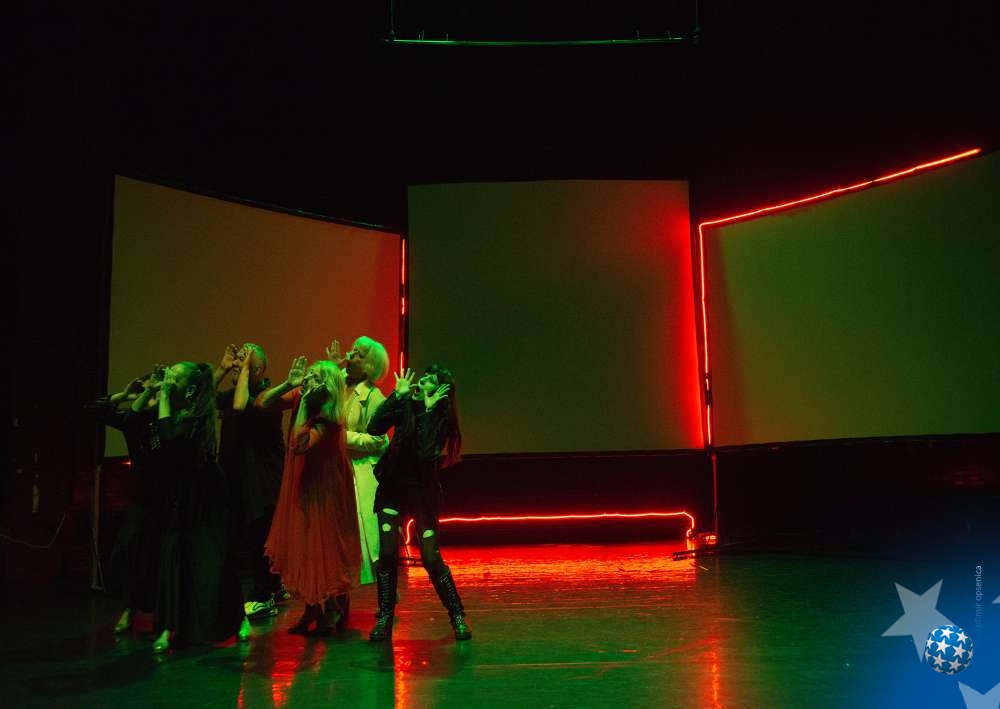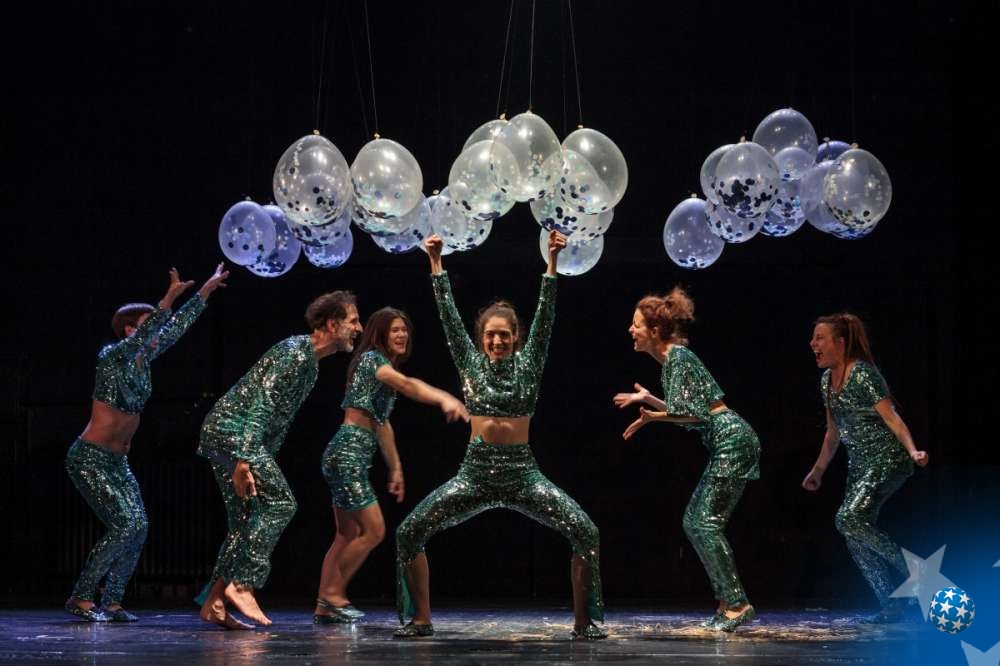Curators’ Statement
Desire To Make a Solid History Will End Up in Failure by the author and choreographer Igor Koruga is one of the two performances from domestic production in this year's competitive selection. This work deals with the complex issue of the position of contemporary dance in Serbia, which is a particularly complex problem because our country does not have institutional framework for preservation, i.e. archiving contemporary dance practices. Through collaboration with six female and male choreographers, pioneers of modern dance expressions, who contributed to the creation of the space for today's dance scene, Koruga and his colleagues draw attention to the impossibility of rebellion and revolution in the period of extreme social crisis during and after the breakup of Yugoslavia. This performance comes from the independent scene, which is important for Bitef in the context of supporting the daily struggle of artists who create in non-institutional settings, which, due to poor working conditions, is also a kind of resistance, rebellion, and non-compliance.
About the Performance
The initial desire in the creation of this dance performance is the question: in what way could archiving dance art be an artistic practice? The author's exploration of this desire takes place through a transgenerational creative exchange with six choreographers/directors/dancers/performers of the local independent dance scene: Nela Antonović, Anđelija Todorović, Jelena Jović, Tatjana Pajović, Boris Čakširan, and Sanja Krsmanović Tasić. Together, these six artists carry out the performance, that is, "archive in motion" - embodying insufficiently documented records of movements, experiences, memories, oral histories from their artistic works - at a time when there is no official institutional framework for archiving the local dance scene. Through the transgenerational (self)questioning of physical, social, emotional, economic, ideological and other (mostly invisible) vulnerabilities behind their cultural and artistic work and practice, the tactics, principles, (re)positioning and contradictions of their self-sustainability as a form of resistance, criticism and togetherness in the turbulent socio-political circumstances of work and life during the last forty years are also being re-examined. What can Antonović, Todorović, Jović, Pajović, Čakširan and Krsmanović Tasić say about all this from today's perspective (artistically and personally)? What are their bodies carrying and hide? In what ways is the impermanence of archiving a time and history reflected through the impermanence of the artistic performance itself (dance performance)? How does dance art (independent scenes) survive as a relevant social, cultural, and political tool for reshaping and remaking the social body? The desire to make solid history is sure to end in failure. The only question is for whom?
The Authors
IGOR KORUGA works as an independent artist in the field of performing arts (contemporary dance and choreography). He received his education in the field of anthropology at the Faculty of Philosophy in Belgrade, and in dance authorship at the Universities of Arts in Berlin and Amsterdam. He is the author of several dance and multimedia works: Landscape of Desire (2023), Why Not? (2022) Closeness of Touch (2022); How to Explain Pictures to a Man (2021); One, Two, Three, Comrade Come, Dance With Me (2021), Lounli Plenet (2020); Hopelessness (2017), Only Mine Alone (2016), etc. He works as an assistant for stage movement in theatre performances and on film, and as a dramaturg in the field of dance. He has collaborated with numerous authors and directors: Tanja Mandić Rigonat, Jovana Tomić, Đurđa Tešić, Bojan Đorđev, Maja Pelević, Dimitrije Kokanov, Olga Dimitrijević, Isidora Stanišić... As a performer, he has appeared on the stages of various theatres in Europe (Dansens Hus Stockholm; Tanzquartier Vienna; Leopold Museum Vienna, HAU Berlin, Uferstudios Berlin, Kammerspiele Munich, Bitef Theatre, Atelje 212, etc.). As a pedagogue, he has worked in various educational platforms: Station Service for contemporary dance; Goethe Institute; Yugoslav Drama Theatre; Belgrade Dance Institute. He is a member of the team for archiving performing arts practices in the region. As a researcher in the field of theory of performing arts, he has contributed to prominent regional magazines (Maska Ljubljana, Walking Theory Belgrade, Kretanja / Movements Zagreb, etc.). He has received stipends by various programmes: Akademie Schloss Solitude; Tanzstipendium by the mayor of Berlin; DanceWEB; Nomad Dance Academy. He won the first prize and the Critic's Prize at the Festival of Choreographic Miniatures, the 43rd Infant Festival and the Annual prize of the National Organization for Rare Diseases of Serbia (NORBS).
